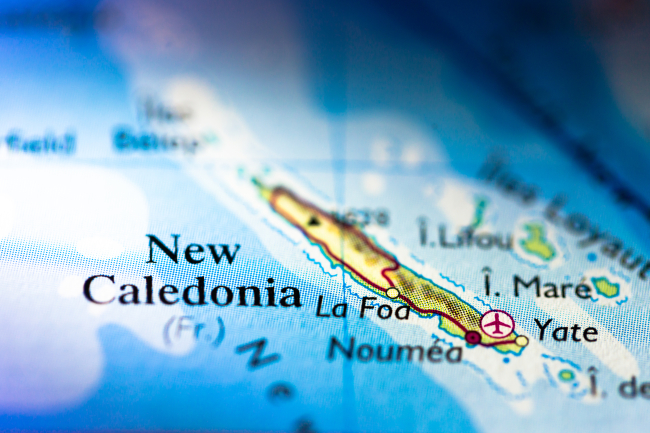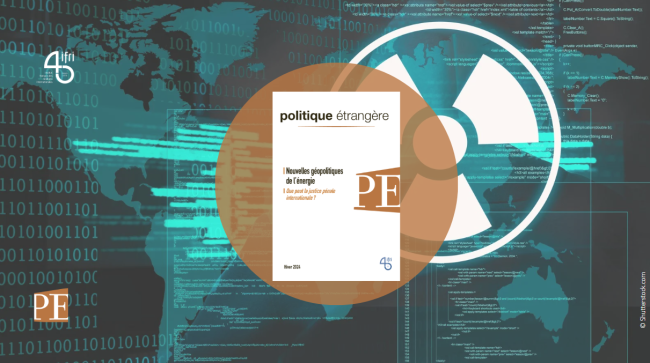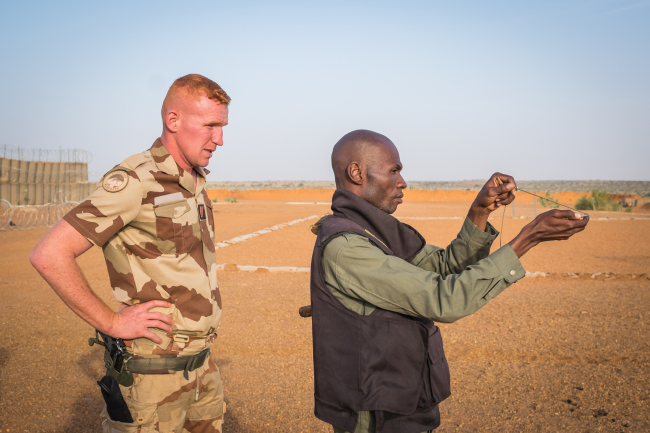Security - Defense
As a result of global strategic competition, security and defense issues are marked by the return of major wars and nuclear deterrence, the transformation of terrorism and the race for military technologies.
Related Subjects

The Baltic Forum 2013
Significant changes in global and regional energy supply and demand, as well as their influence on the political decision-making determine the need to restore proper expert analysis of problems and development perspectives.
Traffic streams, especially energy resource transit, are directly subordinate to the changes in the relations between the countries of the world. Logistics cannot be considered in isolation from the international security and energy policy.
The ensuring of Euro-Atlantic security to the countries and country groups in the surrounding turbulent world is one of the most important and topical issues for joint consideration.
Hostage diplomacy of the Islamic Republic of Iran. The case of Europeans detained in Iran
The so-called hostage diplomacy of the Islamic Republic of Iran refers to a political and diplomatic strategy in which Tehran uses the detention of Western nationals, dual citizens, or Iranian citizens residing in Europe, Australia, or the United States as leverage in diplomatic negotiations. This practice aims to exert pressure to secure political, economic, or diplomatic concessions as part of Tehran’s asymmetric response strategy. Hostage diplomacy remains a controversial yet effective tool from the perspective of the Islamic Republic of Iran, given its context of economic sanctions and diplomatic isolation.
France’s maritime security cooperation in the Pacific
France plays a significant role in Pacific maritime security, particularly through the active participation of its overseas territories and the contribution of its stationed armed forces to regional cooperation initiatives.
From Cuba to Ukraine: Strategic Signaling and Nuclear Deterrence
Strategic signaling—the range of signs and maneuvers intended, in peace time, to lend credibility to any threat to use nuclear weapons—is back.
Rebooting Italy's Africa Policy: Making the Mattei Plan Work
Against the backdrop of increasing anti-French rhetoric across parts of Francophone Africa, the relative failure of the counterinsurgency operation in the central Sahel (Operation Barkhane) and diplomatic rifts with several Sahelian countries, Paris has been rethinking its relationship with the continent for several years now. As a former imperial power that has seen its colonial domain in Africa gain independence between 1956 (Morocco-Tunisia) and 1977 (Djibouti), France has invented two successive roles for itself in Africa since 1960, particularly in French-speaking sub-Saharan Africa.
The dilemma of the Franco-African military relationship: reinvent or turn the page?
The origins of military presence and cooperation in Africa can be traced back to the tacit decolonization pact between the countries of French-speaking Africa. This cooperation led to the creation of African armies in the former colonies, as part of a project to prevent the spread of communism and maintain France's influence in the newly independent countries.
The High Authority for Peacebuilding (HACP) in Niger 2011-2023. Placing the State at the heart of conflict prevention and management.
Like other Sahelian countries, Niger has been affected by terrorism for almost two decades now. This issue has highlighted both the limits of these countries’ security systems and, more profoundly, their inability to offer stability to the populations of certain parts of the country. In a way, these “jihadized insurgencies” are a continuity of groups that regularly take up arms against central states.
Japan: Deciphering Prime Minister Ishiba’s Strategic Vision. Toward an Asian version of NATO?
On Tuesday, October 1, Shigeru Ishiba was sworn in as Prime Minister of Japan. His proposal to revise the security alliance with the United States and create an Asian version of the North Atlantic Treaty Organization (NATO) attracted attention and sparked lively debate.
Russian Strategic Thinking and Culture Before and After February 24, 2022: Political-Strategic Aspects
Written by Dimitri Minic, the scientific article "Russian Strategic Thinking and Culture Before and After February 24, 2022: Political-Strategic Aspects" in Russia’s war against Ukraine: Complexity of Contemporary Clausewitzian War by the National Defence University Department of Warfare, Helsinki 2024.
EUDIS, HEDI, DIANA: What's behind Three Defense Innovation Acronyms?
In Europe, with Russia’s war of aggression against Ukraine showing little sign of abating, a persistent gap remains between security needs and defense spending. According to a 2006 commitment enshrined at the 2014 Wales NATO summit, the North Atlantic Treaty Organization (NATO) members should disburse no less than 2% of their national gross domestic product (GDP) on defense, out of which 20% is to be spent on equipment and research and development. In 2024, only 23 Allies out of 32 are expected to meet or exceed this target, though a significant improvement from only three in 2014. This total includes the United States (US) devoting 3.38% of its GDP to defense, constituting almost 70% of all NATO member defense spending combined.
The Return of Robert Gates
The memoirs of public men are exercises in self-promotion and self-justification. They are designed to etch a portrait of the (wo)man that will live across time. It's the legacy thing. These days, that legacy pertains also to the "here and now" since memoirs are not necessarily the conclusion of a career but rather the curtain-raising on its next act.
Political and Economic Effects of Qaddafi's Death on Chad
On 24 August 2011, President Idriss Déby Itno of Chad recognised the National Transitional Council (NTC) as the only legitimate authority in Libya. Until then, the Chadian president had been a firm ally of the Guide of the Great Jahamiriya, President Qaddafi of Libya. Déby had sustained his long-time friend and helper with military equipment and soldiers from Chad from the beginning of the uprisings.
China's Nuclear Idiosyncrasies and Their Challenges
In many respects, the People’s Republic of China’s nuclear arsenal and posture appear unusual to Western eyes. From its “No First Use” policy to its nuclear warhead storage system, Beijing appears to think about nuclear weapons and their strategic effects in a way that differs with the West in general, and with the United States in particular.
The IDF on All Fronts: Dealing with Israeli Strategic Uncertainty
Facing threats on all its borders as well as social, economic and religious tensions, the Israeli Defense Forces (IDF) are now under significant pressure in accomplishing their core mission: the survival of the State of Israel.
The Primacy of Alliance: Deterrence and European Security
Since the end of the Cold War, the international security environment has been transformed and nuclear weapons have been marginalized in the West. However, the NATO security policies remain almost unchanged: deterrence is still considered as a principle guiding the Atlantic Alliance, even though the actual policy statements lack target, direction and urgency.
China's Fortress Fleet-in-Being and its Implications for Japan's Security
This paper analyzes the rise of maritime China and its implications for Japan’s security policy.
Security Partnerships in Japan's Asia Strategy: Creating Order, Building Capacity and Sharing Burden
During the last decade, Japan has sought partnership with many Asian nations - the drive remaining strong regardless of ruling parties. Newly elected Prime Minister Shinzo Abe of the Liberal Democratic Party of Japan is to continue this trend under the name of ‘value diplomacy".
Command and Control in a Nuclear-Armed Iran
In the long standoff regarding its nuclear ambition, Iran has cultivated ambiguity and been loath to reliably assure the international community of its ultimate intentions, complicating Western efforts to understand, let alone constrain, Tehran’s endeavors.
The Defense Budget in France: Between Denial and Decline
Although defense spending is the fourth budget item in France, it is rarely a matter of public debate. During the past three decades, defense has been affected in turn by the desire to rip the benefit of the post-Cold War “peace dividend”, the professionalization of 1997, and the increase of overseas operations after September 11, 2001.
Ballistic Missile Defense in Japan: Deterrence and Military Transformation
In December 2003, Japan decided to be the second country in the Asia-Pacific to deploy a ballistic missile defense (BMD) system.
Support independent French research
Ifri, a foundation recognized as being of public utility, relies largely on private donors – companies and individuals – to guarantee its sustainability and intellectual independence. Through their funding, donors help maintain the Institute's position among the world's leading think tanks. By benefiting from an internationally recognized network and expertise, donors refine their understanding of geopolitical risk and its consequences on global politics and the economy. In 2024, Ifri will support more than 70 French and foreign companies and organizations.
























